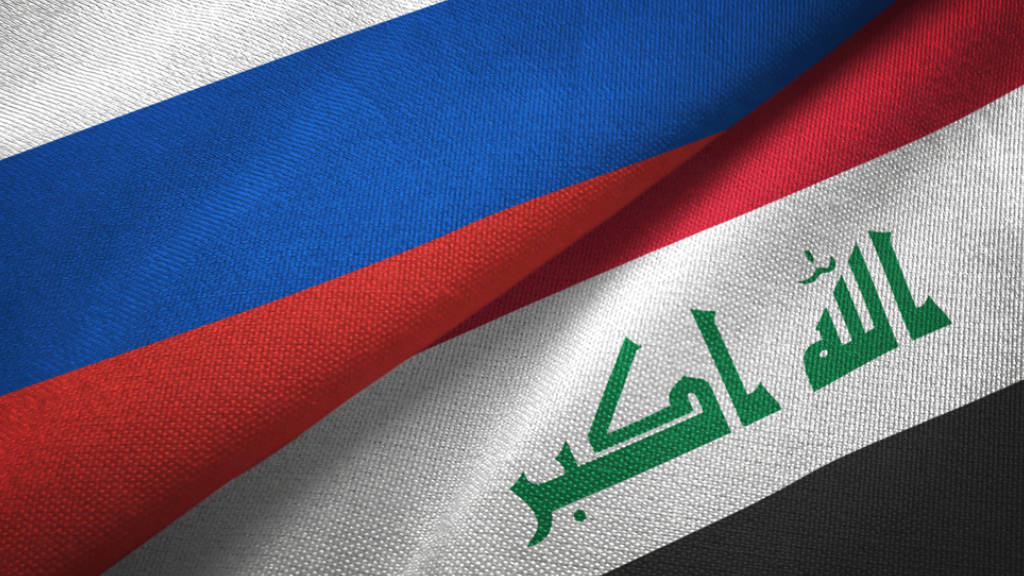The Russian Ambassador to Iraq, Elbrus Kutrashev, has stated that the Iraqi government is interested in BRICS, but it is too early at present to talk about the country becoming a member. Speaking to Izvestia, he said “Russia is in fashion among Iraqis now. There are many who want to visit Russia for tourism or business purposes, our exchange of delegations is more active, and the BRICS association is becoming very interesting, in which Baghdad understands that Russia plays a significant role.”
However, Kutrashev cautioned that the United States would try and counter such steps, saying “Should the US learn that Iraq has begun practical steps to join the BRICS, they will try to prevent this. Iraq cannot afford another confrontation with the United States. So, it is too early to talk about this now, but we will come to it in time.”
Kutrashev added that the United States is “irritated” by the fact that Russia is “very popular among influential political organizations and some of the armed groups”. Apparently, when Russia’s special military operation in Ukraine began, some Iraqi units put up portraits of Russian President Vladimir Putin on the streets of Baghdad. “This was a clearly expressed support for Russia” he noted.

Energy
Russian trade and investment with Iraq is dominated by the energy sector. Russian Foreign Minister Sergey Lavrov said in September that Russia had invested over US$19 billion in the Iraqi energy industry, with Luk Oil, Gazprom Neft, and Rosneft accounting for the bulk of this investment. Russia is looking to expand its investment in Iraq to about US$45 billion by 2035.
Up to 96% of Iraq’s revenues come from the sale of its crude oil, with Russia one of the largest players in Iraq’s oil and gas sector. Russia and Iraq have signed new agreements aimed at increasing cooperation in the energy field, including exploration projects, drilling, and gas flaring reduction. Luk Oil operates a large oil project in Qurna, located in Basra province. Recently, the contract for the development and production of Iraq’s Western Horn 2 oil field has been extended until 2045 aimed at increasing production up to 800,000 barrels per day.
The presence of Gazprom in the Badra oil field in the Maysan and Garmian block is also important. Other Russian energy companies such as Zarubezhneft, Tatneft, are working to increase access to opportunities in Iraqi oil.
Iraq’s Dhi Qar Oil Company signed a contract with Russia’s Luk Oil last year to set up the Eridu oil field. This will increase daily production from 30,000 to 250,000 barrels. Rosneft has also acquired 60% ownership of the Kirkuk-Ceyhan pipeline, which feeds into Turkiye.
There are other projects under consideration, including the Turkiye-Syria oil pipelines, the revival of the Iraqi-Syrian pipeline, the gas pipeline from Kirkuk (Northern Iraq) to Europe, supplying Iraq’s domestic needs for electrical energy, and investing in the oil refinery in Mosul. Regardless of EU sanctions on Russian energy supplies, money from the EU will continue to flow to Russia as part of the return of investment in infrastructure supplies, as well as Turkiye’s emergence as an EU energy hub. Turkiye mixes Russian oil and gas with other energy sources such as Iraq, refines this, and resells it to the EU.
The OPEC+ agreement provides close cooperation and greater coordination of countries with both rich oil resources and common interests with the aim of maintaining stability in the global energy market.
Industrial Cooperation
For both countries, it is important to achieve national development goals, ensure economic security, increase non-resource and non-energy exports, and release economic potential in relations. About 50 Russian companies operate in Iraq. For example, a Russian consortium is implementing a large project to renovate and modernize a glass and ceramic products factory in Iraq’s Anbar province.
Food Security
Iraq imports 50% of its food, with Baghdad increasingly looking to Russia to meet its annual requirement to import 4-5 million tons of wheat. Bilateral trade was affected by a significant increase in the purchase of sunflower oil, wheat flour, and animal feed in 2022 and both are looking to establish shock-proof supply chains. There is also potential for investment in modernizing the Iraqi agricultural industry, improving food security, and sustainable agricultural development.
Transport and Infrastructure
According to the Prime Minister of Iraq, Baghdad wants Moscow to participate in the launch of the US$17 billion Iraq Development Road project, which would run 1,200 km from Turkey to Iraq’s Faw Port, near Kuwait in the Persian Gulf. This would become an eastern part of the International North-South Transportation Corridor; and is under study to ascertain viability. Last year, an air services agreement was also signed between Iraq and Russia. Iraq has also recently joined the TIR convention.
Iraq and Russia also recently signed a maritime transport cooperation agreement to facilitate the passage of goods and passengers through their seaports. Bilateral efforts in infrastructure development, various infrastructure projects such as airport renovation, and urban development initiatives would all help trade and increase trade route capacity.
Further Reading
Syria Negotiating To Join BRICS

 Русский
Русский













